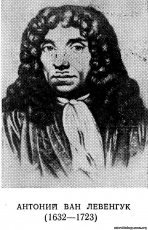Microbiology Development History As Science
 I. E. Machnikov and his students made a major contribution to microbiology and immunology. The famous Russian scientist, who was persecuted for his beliefs, has lived and worked in Paris since 28 years at the Paster Institute. Under his direct leadership, many Russian doctors worked in Paris. His outstanding work and the work of his students, as Ru wrote, I. E. Mechnikov, brought the Paster Institute. E. Mechnikov is the custodian of the fagocitarian theory of immunity. He showed that cellular protection was one of the most important mechanisms for helping a person to combat disease-free microbes in his system. E. Mechnikov found that white blood cells - leukocytes - capture and eat microbes penetrated into human body tissues. There's an inflammatory reaction at the microbe penetration site, and gene is the dead leukocytes. Cells eating microbes, I. E. Mechnikov called fagocites (from the Greeks phagos is arrogant, kytos is a cage). He devoted 25 years of life to the development and proof of the fagocitary theory of immunity and was awarded the first Nobel Prize.
I. E. Machnikov and his students made a major contribution to microbiology and immunology. The famous Russian scientist, who was persecuted for his beliefs, has lived and worked in Paris since 28 years at the Paster Institute. Under his direct leadership, many Russian doctors worked in Paris. His outstanding work and the work of his students, as Ru wrote, I. E. Mechnikov, brought the Paster Institute. E. Mechnikov is the custodian of the fagocitarian theory of immunity. He showed that cellular protection was one of the most important mechanisms for helping a person to combat disease-free microbes in his system. E. Mechnikov found that white blood cells - leukocytes - capture and eat microbes penetrated into human body tissues. There's an inflammatory reaction at the microbe penetration site, and gene is the dead leukocytes. Cells eating microbes, I. E. Mechnikov called fagocites (from the Greeks phagos is arrogant, kytos is a cage). He devoted 25 years of life to the development and proof of the fagocitary theory of immunity and was awarded the first Nobel Prize.
A lot of attention has been paid to I. E. Mechanics to the problem of organism ageing. He believed that the rotous microbes living in a fat man's bowels poison the organisms with poisonous products of their life. He therefore suggested that the antagonistic relationship between microbes should be used to combat the old age. By replacing the rotary microflor of the bowel with a milkshake, which is in the simplicity, it is possible, as I. E. Mechnikov thought, to avoid the introduction of poisonous products. Despite the fact that the problem of the ageing of the organism was much more complex than that of the scholar, the idea of using one type of microb in the fight against another (antagogical) had brought substantial fruit. It was a shining expression in the use of antibiotics to treat infectious diseases. Microbes are currently being used for the manufacture of biopreparates from various microbes (colibacterin, bifidubacterin, bificolic et al.) for the treatment of acid diseases.
Scholars and employees of I. E. Mechnikov were L. A. Tarasevich, A. M. Bezredka and P. V. Ziklinski.
L. A. Tarasevich (1868-1927) is one of the largest organizers of the fight against the epidemics of contagious diseases in Russia. The closest pupil and the continuation of his teacher ' s tradition, L. A. Tarasevich, worked extensively on the issue of immunology and fagocitosis, studied tuberculosis among the Kalmakov, and introduced tuberculosis and bowel infections into the practice.








